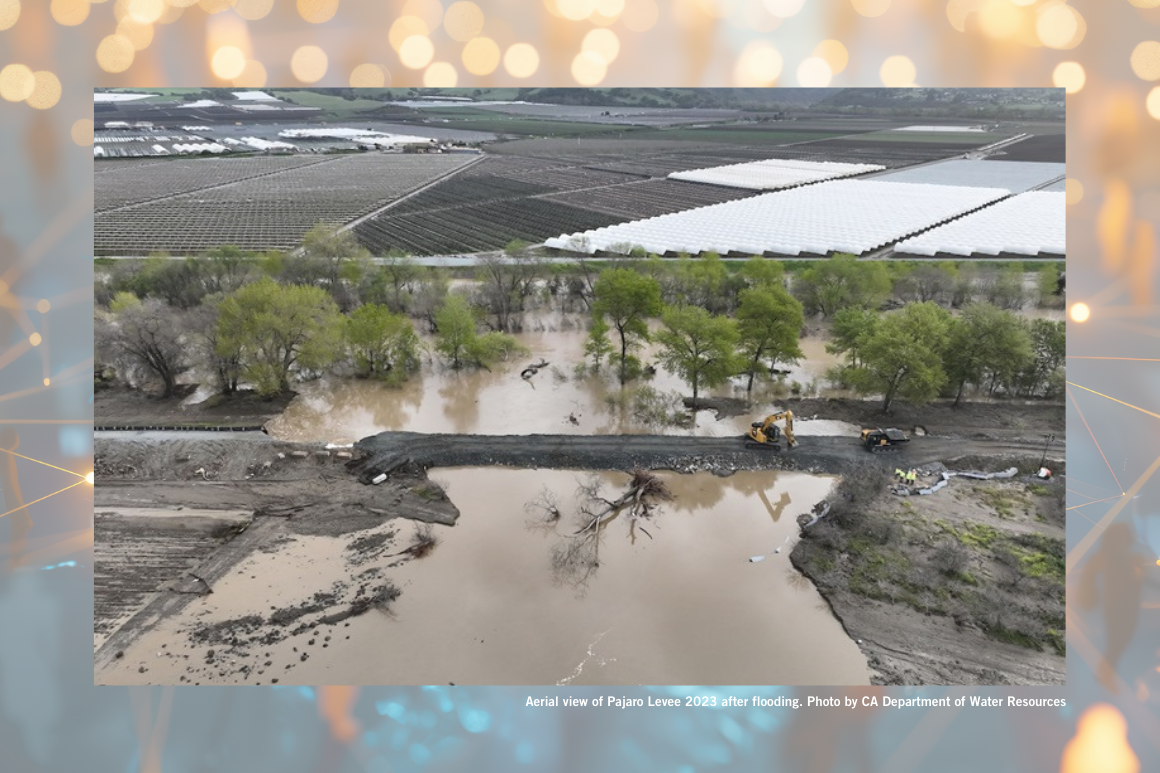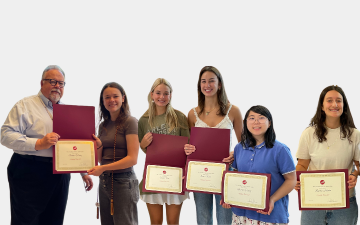The Community of Pajarjo, California

In March of 2023, a long-neglected levee failed under the pressure of winter storms and caused catastrophic flooding in the unincorporated farming community of Pajaro, California. This event resulted in the evacuation of over 1,500 residents, and impacts including housing damage, loss of agriculture, and physical and mental harm. Despite this, the community received limited government aid, and still no permanent repair to the levee.

Executive Director, Don Heider presents the 2024 Markkula Prize to the 2023-24 Environmental Ethics Fellows—students Anna Krebs ‘25, Karina Martin ‘25, Tatum Petti ‘24, Emma Young ‘24, and Sarah Young ‘24.
The Fellowship in Environmental Ethics is awarded from the Markkula Center to outstanding Santa Clara University undergraduates to support a project examining the ethical implications of an environmental topic, supported by generous gifts from John and Joan Casey, and Mary Ganahl.
This year's fellows formed an interdisciplinary team that dedicated hours speaking directly with community members affected by the Pajaro flooding and aimed to understand the lived experiences of those impacted. “Meeting the kind community in-person to talk about a devastating tragedy in their lives was eye opening and very impactful for me," said Krebs ‘25. "The best feedback came from community members who were grateful that their story was being heard.”
Led by David DeCosse, director, Religious and Catholic Ethics and Campus Ethics Programs, Professor Rocio Lilen Segura of civil engineering and Professor Iris Stewart-Frey of environmental studies, their work involved conducting interviews in both English and Spanish, reviewing relevant literature, and studying the ethical, hydrological, and engineering aspects of the issue. They also contributed to various publications to raise awareness about the situation in Pajaro and similar communities across the United States.
According to Professor Stewart-Frey, collaboration with the Markkula Center brought “deep knowledge on ethical dimensions and ethical frameworks,” and an “organized structure for the team to work together.”
DeCosse highlighted the real-world impact of the fellowship experience, emphasizing the importance of engaging directly with communities: “I know it was profoundly impactful for our students,” said DeCosse. “This was an occasion for them not just to theorize about [the ethical implications], but to encounter them and these beautiful human beings in Pajaro.”

Aerial view of Pajaro, CA. Photo by Robert Campbell, CC BY-SA 3.0 , via Wikimedia Commons.
“If you like strawberries, they’re doing the work to pick them, so maybe we all ought to think about the conditions in which the people who pick the food we all love to eat live,” concluded DeCosse.
